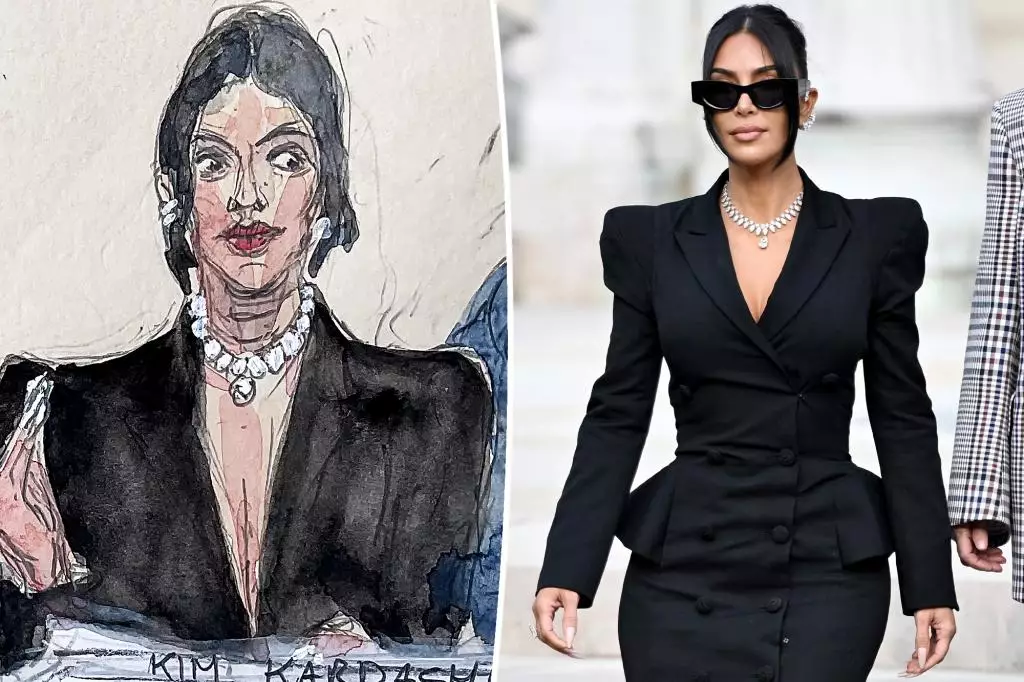In October 2016, the world was captivated and horrified by the audacious robbery that targeted Kim Kardashian during Paris Fashion Week. Eight members of the infamous “grandpa robbers” gang, who orchestrated the heist of $10 million worth of jewelry from the reality TV star, have recently been found guilty by a Paris court. This case not only underscores the vulnerabilities of even the most prominent figures but also raises important questions about crime, justice, and the legal system’s response to aging offenders.
The intricate details of the robbery reveal a perfect storm of circumstances: a celebrity temporarily residing in Paris, a sensationalist media frenzy, and a group of aged criminals who executed an elaborate plan. The ringleader, Aomar Aït Khedache, and his crew executed their scheme stunningly well, but the triumph was short-lived. As a society, what does it say about our fascination with such high-profile criminals that we continue to watch these dramas unfold in courtrooms long after the crime?
Sentencing: A Mixed Bag of Justice
The sentencing that has emerged from this case raises eyebrows. Khedache received an eight-year sentence, though five years were suspended, meaning he likely will not face serious time in prison for his role in the crime. Likewise, three accomplices were handed similar sentences, but none will actually serve time due to pretrial detention. This apparent leniency geared toward older defendants—most being in their 60s and 70s—sparks discomfort about fairness in sentencing. Does age really warrant a lesser consequence for heinous acts?
This situation has provoked a polarized response from the public. While some might argue that the elderly should be treated with compassion, others believe that a crime of this magnitude demands appropriate retribution, regardless of the perpetrators’ age. The justice system must consider whether leniency undermines the severity of the crime committed.
Kardashian’s Remarkable Resilience
Kim Kardashian’s response to the court’s verdict is one of profound complexity. In her statement, she expressed gratitude toward French authorities for “pursuing justice,” yet the memories of the harrowing crime remain etched in her psyche. Her experience, as she described in chilling detail, was one of terror and trauma. The victim’s voice in this situation is crucial; Kardashian’s emotional scars remind society of the profound impact criminal acts can have on victims and their families.
Kardashian’s subsequent advocacy for justice reform adds another layer to her narrative. She transcends her celebrity status by leveraging her platform to highlight the need for a fair legal system. This commitment is admirable, especially in a world where many victims remain voiceless. Her transition from victim to advocate reflects a journey toward healing and empowerment, reminding us that even in the darkest moments, there lies the potential for growth.
Acquitted Informants: The Gray Areas of Justice
The acquittal of the two informants—who allegedly relayed Kardashian’s whereabouts to the gang—raises additional probing questions about the complexities of criminal enterprises. While the main perpetrators face justice, those who may have contributed to the crime from the shadows walk free, highlighting an unsettling aspect of accountability. Can a person truly be held accountable if they sit on the sidelines, feeding vital information without breaking the law directly?
This case demonstrates the multifaceted nature of justice, where not all players on the board are captured by the law. The implications of this are significant: it forces society to consider whether enough is being done to combat organized crime and the individuals who may act as informants.
Pursuit of Justice: A Moving Target
The journey toward justice for Kardashian was anything but straightforward. Every time a verdict is delivered, we stand at the crossroads of the legal system’s successes and failures. Kim’s courageous testimony brought attention to the terrifying realities faced by victims of violent crimes, as she recounted the terror of feeling she’d be murdered in her own home.
It’s crucial to reflect on how these events shape attitudes toward victims and the judicial process. As Kardashian continues to work in advocating for reform, the case certainly serves as a powerful narrative on the need for an evolved justice system—one that truly considers the rights and dignity of all involved. In the end, the Kardashian heist encapsulates the very essence of fame, crime, and the complex web of justice entangled in our perception of both.

